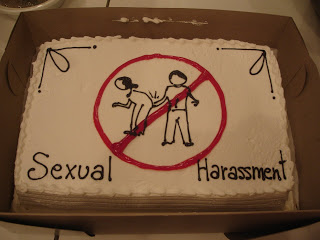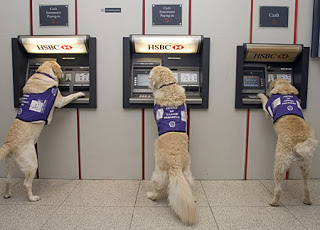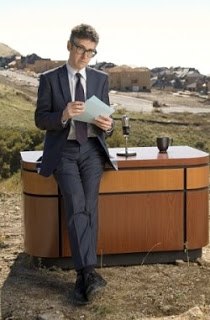
After some disappointing years spent as a starving actor, Chris Blumer turned to a career in drinking. She is the founder of her own wine consulting company called Winediva Enterprises, which provides wine classes, private tastings, restaurant training, and wine writing. Chris was diagnosed with cancer in May of 2008 during surgery for an ovarian cyst. Her surgeon removed all of the tumors and some optional body parts while he was in the neighborhood. Chris, who is 38 years old, currently gets chemo every two weeks to make sure the cancer cells don’t get ideas about sprouting anywhere else.
Chris wrote the following essay for newbies on the chemo-scene. She receives chemo at the swank Lurie Cancer Center at Northwestern Memorial Hospital in Chicago. (I’ve never had treatment at the Lurie, but I have had a major meltdown on one of their waiting room couches; plush yet firm.) In upcoming weeks I’ll also post chemo 101 essays by young adult cancer patients receiving treatment in a public and rural cancer center.
Yesterday, I sat next to a very nervous young woman in the grand waiting room at the hospital. She had just got a port put in and had no idea what to expect or even where to wait in the giant room. I’m so glad she had the courage to ask me for the 411. I thought I’d share my experience with any newbies who may be starting treatment soon.
First off, a chemo port is a glorious thing and saves all your veins in your arms and the rest of your body for other wacky stuff they may need to inject you with. But, heads up, getting one put in is a bit freaky. Here’s the thing: they keep you AWAKE while they do it. You get some sedative type drugs, but essentially a nurse just tells you to look the other way while the surgeon gets down to business. I felt no pain and my awesome nurse kept me occupied with hilarious chat about 80′s music and gay fashion. Essentially you leave with this quarter sized titanium thing just under the skin with a little scar.
When I report for appointments, I check in at a big reception desk where very nice ladies ask my name and birthdate several times and then hand me a pager thing like you get at Chili’s or Cheesecake Factory. It lights up and buzzes when the next doc or nurse is ready for you. I have to admit, the first time I got one of those damn things I felt like the whole process was pretty dehumanizing. Are you freakin kidding me?! A restaurant pager?! But I got over my indignation pretty quickly as I realized its probably related to HIPAA and privacy policies, which frown upon shouting patients’ names in a crowded waiting room.
If you have a port, at my hospital, you are generally buzzed right away to go the blood draw area. Those “in the know” figure out that you can pretty much migrate back to the smaller blood draw waiting area with out the nurse escort coming to get you. The magazine selection is generally better in this spot for some reason, so I recommend doing your reading/pilfering mags here. There’s also a big bag of knitted hats that some kind soul leaves in this area free for the taking. They’re a bit dowdy for my taste, but still super thoughtful.
The folks in blood draw flush your port with an injection and then insert a kind of plug like thing into your port that has a small needle. They have a cold spray to numb the area if you like, but I prefer to just take a deep breath and suck it up. It only stings for a short second. At that time, they take a couple of blood samples to make sure your counts and such are high enough to get treatment. Then they connect a small IV tube section to your port and secure it with some tape or special protection if you have the fanny pack/chemo to go thingy like I do. Then I get dispatched back to the big waiting area again. If you feel like you need to pee or might soon, you can request a pee cup in blood draw. They will hold your pee sample for your nurses who will be looking to get one from you a bit later. So, no need to hold it if you’ve got some morning coffee waiting to escape now.
It takes about 15-30 minutes for the lab to check your blood and OK you to move on to chemo treatment. Once again, I am paged - this time to a treatment “pod” of rooms. A nurse from my team (I get the same gals everytime, so that’s nice.) takes my vitals and gets me comfy while inquiring about my side effects and how life and such is going. They hook your meds on to a big IV type stand and connect the tubes to the tube in your port. A few buttons are pushed and you are in business. All of my treatment rooms are private with a bed, TV, DVD player and a nice side table for your stuff. There’s also a recliner for friends to kick back in. On my longer drip days, I watched a movie, read a magazine, and suddenly I was done. But you’re free to sleep, read, play on your laptop or whatever you like.
Since there are lots of fluids dripping into your system, you will probably have to pee a few times during treatment. (I also bring a bottle of water and a snack for longer days. ) At first, this may seem impossible as you are tethered to a machine and an IV pole which is plugged into the wall. Never fear! You can unplug the machine and drag the pole with you to the bathroom and just plug it back in when you return. It runs on battery while you do your business.
I highly recommend staying as hydrated as you can and eating a healthy breakfast on the day of treatment. It definitely seems to help flush the poison stuff out of my system and gets me feeling “normal” quicker. I prefer to go by myself, but at least the first time around, you may want to bring a pal to keep you company. Some people are truly wiped out after treatment and definitely need a friend to drive them home.
I’m generally OK to just hop on the train, but best figure out how you react to your drugs first.
So - that’s my report. Hopefully this takes a bit of the “fear of the unknown” away and helps some folks know what to expect. I’m sure every hospital is different, but I think the procedure is similar at most big research and teaching hospitals. Don’t be intimidated by the environment. Everyone there is working to help you get better. They’re on your team.


![]()
![]()










 “Everything Changes is, without doubt, the most forthright, emotionally sophisticated, and plain-old valuable book of its kind I've seen.”
“Everything Changes is, without doubt, the most forthright, emotionally sophisticated, and plain-old valuable book of its kind I've seen.”












